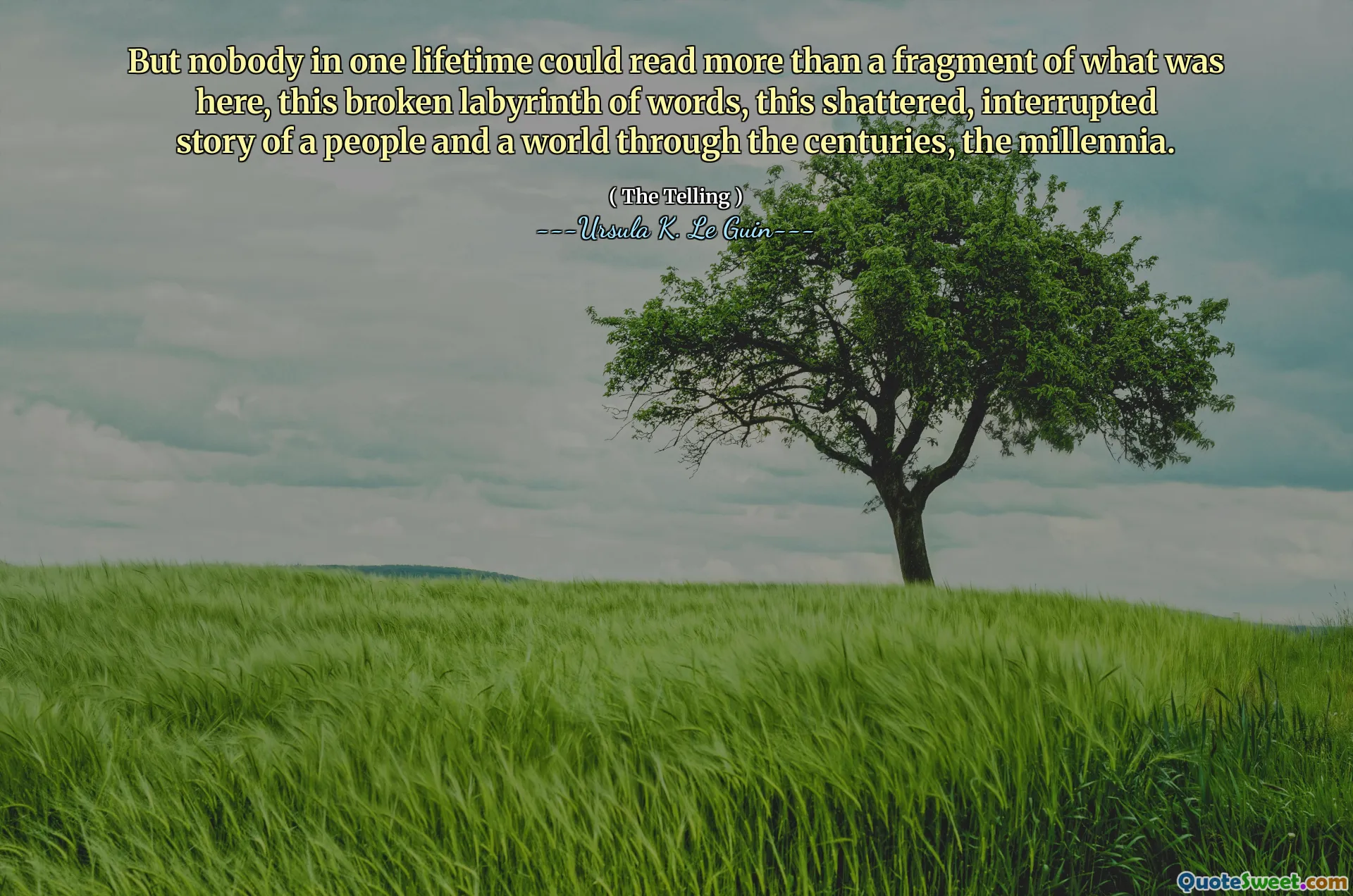
But nobody in one lifetime could read more than a fragment of what was here, this broken labyrinth of words, this shattered, interrupted story of a people and a world through the centuries, the millennia.
This quote eloquently captures the overwhelming vastness of human history and knowledge preserved through language and stories. It reflects an inherent humbling truth: the entirety of human experience, culture, and wisdom cannot be fully grasped in a single lifetime. The imagery of a "broken labyrinth of words" suggests not only complexity but also the fragmented and sometimes lost nature of historical narratives — history that is passed down but inevitably incomplete or disrupted over time.
The use of terms such as "shattered" and "interrupted" adds a poignant, almost melancholic layer to the reflection on our collective memory. It implies that what we know is pieced together rather than continuous, emphasizing how the flow of history and storytelling is subject to the disruptions of time, war, conquest, and cultural shifts. This highlights the essential role that literature and storytelling play in maintaining and transmitting cultural identity.
The quote also indirectly touches on the limits of individual understanding. No matter how learned one might be, there exists a vast expanse of human wisdom, experiences, and histories that lie beyond reach. This can inspire both humility and curiosity—humility in appreciating the enormity of human experience, and curiosity to explore and learn as much as possible about this vast "labyrinth."
Ultimately, it underscores the importance of collective effort in preserving and interpreting our heritage. Each person’s fragment contributes to a larger mosaic—a shared story of humanity that continues to evolve and unfold. In literature or history, this fragmentarity is not a shortcoming but rather a beautiful characteristic of the human condition, always open to new interpretations and discoveries.






